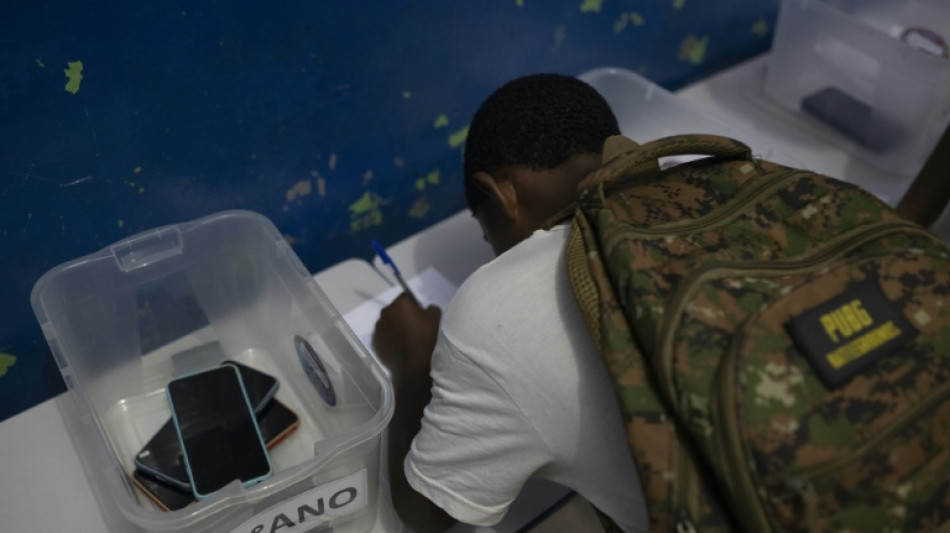
-
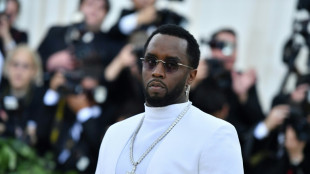 Trial of Sean 'Diddy' Combs heads into closing arguments
Trial of Sean 'Diddy' Combs heads into closing arguments
-
Wallabies release Reds pair Faessler and Paisami for Lions clash
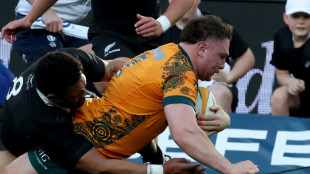
-
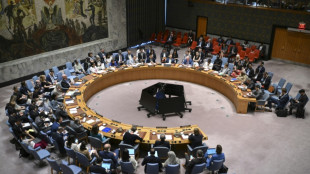 UN Charter: a founding document violated and ignored
UN Charter: a founding document violated and ignored
-
Vinicius, Mbappe have to defend: Real Madrid's Alonso
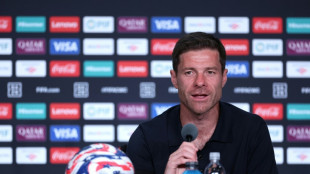
-
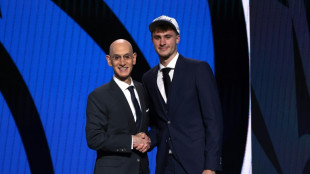 US teen Cooper Flagg chosen by Mavericks with top pick in NBA draft
US teen Cooper Flagg chosen by Mavericks with top pick in NBA draft
-
Guardiola says City must be ready to 'suffer' in Orlando heat
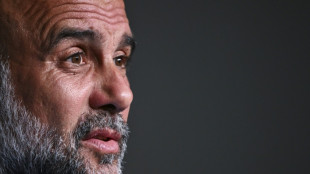
-
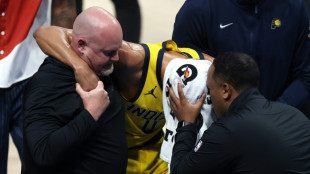 NBA studying uptick of Achilles injuries - Silver
NBA studying uptick of Achilles injuries - Silver
-
Pacquiao 'hungry' for comeback after four-year layoff
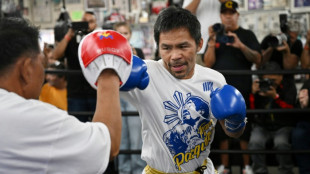
-
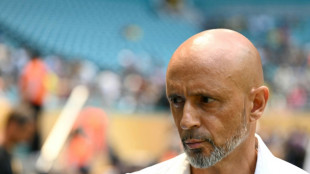 'Job done': Sundowns coach proud despite Club World Cup exit
'Job done': Sundowns coach proud despite Club World Cup exit
-
RFK Jr vaccine panel targets childhood vaccinations in first meeting
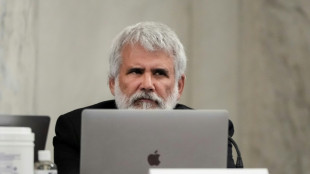
-
 Tech giants' net zero goals verging on fantasy: researchers
Tech giants' net zero goals verging on fantasy: researchers
-
Australia quicks hit back after strong West Indies bowling effort
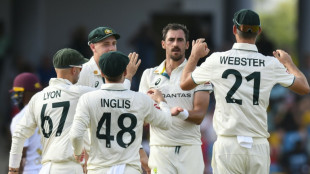
-
 Dortmund through to Club World Cup last 16, Fluminense deny Sundowns
Dortmund through to Club World Cup last 16, Fluminense deny Sundowns
-
Judge orders Trump admin to release billions in EV charging funds
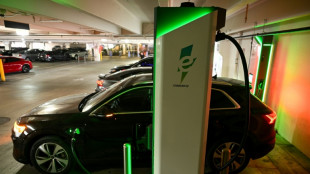
-
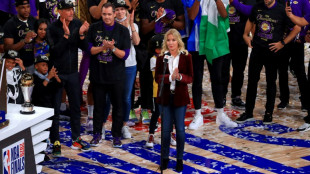 Sale of NBA's $10 bn Lakers expected to close this year
Sale of NBA's $10 bn Lakers expected to close this year
-
US Fed proposes easing key banking rule
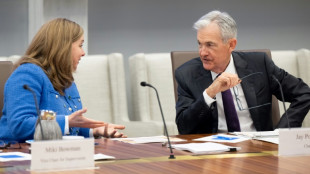
-
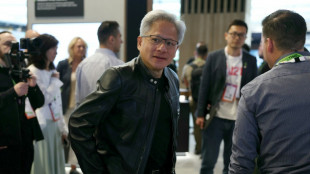 Nvidia hits fresh record while global stocks are mixed
Nvidia hits fresh record while global stocks are mixed
-
Elliott-inspired England to play Germany in Under-21 Euros final
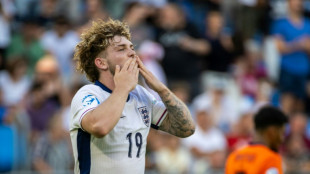
-
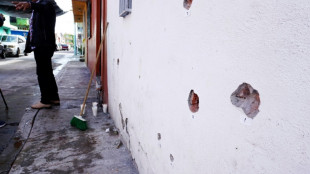 Gunmen kill 11 in crime-hit Mexican city
Gunmen kill 11 in crime-hit Mexican city
-
Mbappe absent from Real Madrid squad for Salzburg Club World Cup clash

-
 Sainz opts out of race for FIA presidency
Sainz opts out of race for FIA presidency
-
Shamar Joseph rips through Australia top order in first Test
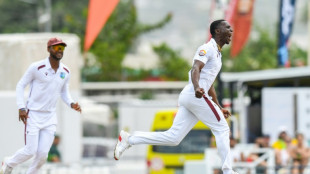
-
 Court rejects EDF complaint over Czech nuclear tender
Court rejects EDF complaint over Czech nuclear tender
-
Mbappe returns to Real Madrid training at Club World Cup

-
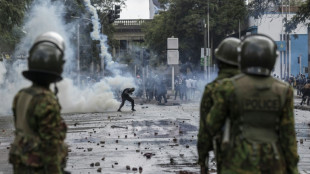 Kenya anniversary protests turn violent, 8 dead
Kenya anniversary protests turn violent, 8 dead
-
Elliott double fires England into Under-21 Euros final
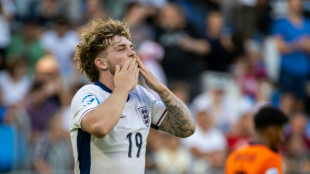
-
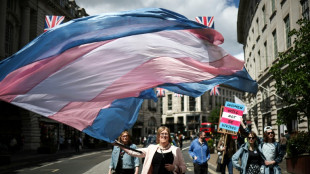 Trans campaigners descend on UK parliament to protest 'bathroom ban'
Trans campaigners descend on UK parliament to protest 'bathroom ban'
-
New York mayoral vote floors Democratic establishment

-
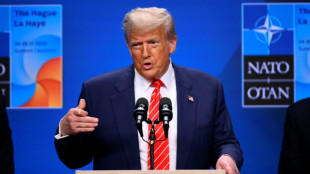 Trump claims 'win' as NATO agrees massive spending hike
Trump claims 'win' as NATO agrees massive spending hike
-
EU probes Mars takeover of Pringles maker Kellanova

-
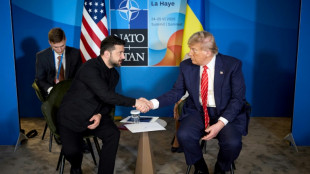 Sidelined Zelensky still gets Trump face time at NATO summit
Sidelined Zelensky still gets Trump face time at NATO summit
-
Mexico president threatens to sue over SpaceX rocket debris
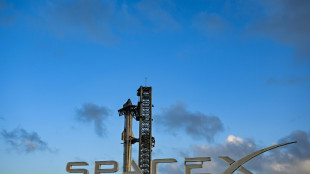
-
 Amazon tycoon Bezos arrives in Venice for lavish wedding
Amazon tycoon Bezos arrives in Venice for lavish wedding
-
Shamar Joseph gives West Indies strong start against Australia
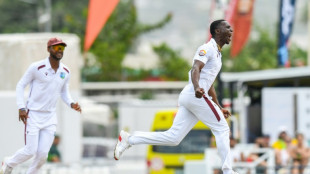
-
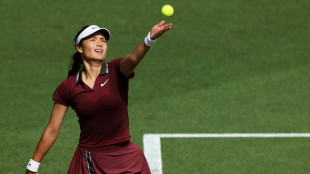 Raducanu's Wimbledon build-up hit by Eastbourne exit
Raducanu's Wimbledon build-up hit by Eastbourne exit
-
RFK Jr.'s vaccine panel opens amid backlash over fabricated study
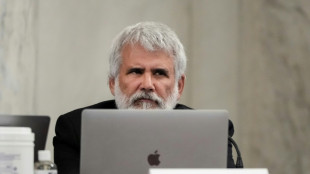
-
 'You try not to bump into things:' blind sailing in Rio
'You try not to bump into things:' blind sailing in Rio
-
Trump says 'three or four' candidates in mind for Fed chief
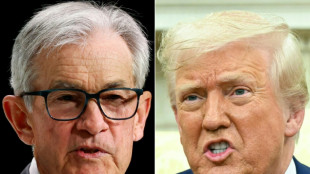
-
 Trump teases Iran talks next week, says nuclear programme set back 'decades'
Trump teases Iran talks next week, says nuclear programme set back 'decades'
-
Turkey tussles with Australia to host 2026 UN climate talks
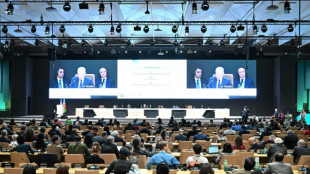
-
 Bielle-Biarrey 'fit' for Top 14 final after suffering concussion
Bielle-Biarrey 'fit' for Top 14 final after suffering concussion
-
James Webb telescope discovers its first exoplanet

-
 Kenya's Kipyegon seeks history with four minute mile attempt
Kenya's Kipyegon seeks history with four minute mile attempt
-
Gunmen kill 10 in crime-hit Mexican city
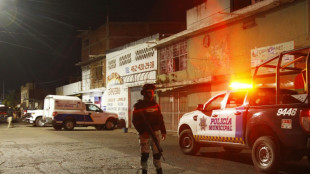
-
 Olympic surfing venue battling erosion threat
Olympic surfing venue battling erosion threat
-
Relief, joy as Israel reopens after Iran war ceasefire

-
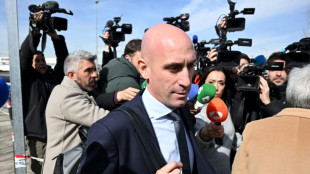 Spain upholds fine against Rubiales for Hermoso forced kiss
Spain upholds fine against Rubiales for Hermoso forced kiss
-
Iran hangs three more accused of spying as fears grow for Swede

-
 Australia choose to bat first in first Test against West Indies
Australia choose to bat first in first Test against West Indies
-
Gambhir backs India bowlers to 'deliver' despite first Test misery
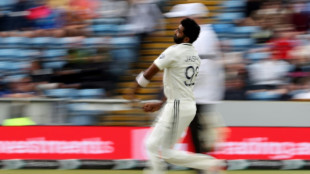

Playgrounds come alive again with Brazil school phone ban
In Rio de Janeiro, children are playing again "like in the old days," and their focus in class has improved after a school cellphone ban pioneered in the city that has now gone national.
Students across the country of more than 200 million people are starting the school year with phones banned from classes and break time after a new law signed by President Luiz Inacio Lula da Silva in January.
Brazil, which has more smartphones than people, joins a growing number of nations using such bans to pry devices from the hands of children hooked on social media.
"It was difficult because we get addicted and ... it ends up causing a certain withdrawal ... but after the habit passes, we interact more," said Kamilly Marques, 14.
A student at the Reverend Martin Luther King public school in Rio de Janeiro, Marques told AFP she didn't even bother bringing her phone to school anymore, a year after the city first implemented the ban.
She is not alone. Only a few students now stop under a large mural of the US civil rights hero to place their devices in plastic boxes before heading to class.
Marques said that while she first thought the ban was "annoying" and "boring", she is happier with her improved grades and social life.
"There was a classmate who was cyberbullied, and we didn't even know, because we were more focused on our phones than on our friends, you know?" she said.
- Addicted and anxious -
UN culture and education body UNESCO said that at the end of 2024, 40 percent of global education systems had some sort of ban on smartphone use in schools, up from 30 percent a year earlier.
Rio's municipal education secretary, Renan Ferreirinha, told AFP that officials had noticed children returning to classrooms after the Covid pandemic "more agitated, more impatient, more addicted to cell phones and much more anxious."
A 2024 survey of parents by digital research company Opinion Box and mobile industry platform Mobile Time showed most Brazilian children got their first cellphone at an average of 10 years old.
While children under the age of three were spending almost an hour and a half a day on smartphones, this rose to almost four hours for those between 13 and 16.
A study carried out by the Rio de Janeiro municipality in September showed improvements in concentration, class participation and student performance since the school ban was implemented.
Ferreirinha, who is also a federal lawmaker, acted as rapporteur for the law which took the ban nationwide.
If moderating cellphone use "is difficult for an adult, imagine what it's like for a child. It doesn't make any sense for a teacher to be trying to teach a class while the child is watching a video on social media or playing a game on their phone," he said.
On a recent school visit, one child told him they were back to playing like kids did "in the old days."
- 'Much happier' -
Fernanda Heitor, 46, the deputy director of the Reverend Martin Luther King school -- which has students aged six to 16 -- said classes had become unsustainable before the ban.
"There was resistance. Even today, some still hide their cell phones when they enter the school," she said.
She described break time previously as "islands" of children sitting glued to their phones.
"They didn't interact, there wasn't much play, they didn't talk. Now they play... It's transformed the school. It's become much happier, much more lively."
Brazil's new law allows cellphone use for educational purposes, emergencies and health purposes.
Fabio Campos, an expert on education and technology, told AFP that while he believed the law was necessary, students should be taught how to use technology responsibly.
"Brazil is a country of inequality. Many students only have access to technology at school. So, if this means that schools will become less technological, it is a failure."
Ferreirinha said parents also need to impose more limits at home.
At the Reverend Martin Luther King school, Pedro Henrique, 11, still brings his smartphone to school every day and uses it a lot at home.
"I miss the cellphone a little," during breaktime, he admits, adding that at the end of the day "I feel happy, because I'll be with my cell phone and using it."
Y.Zaher--SF-PST
